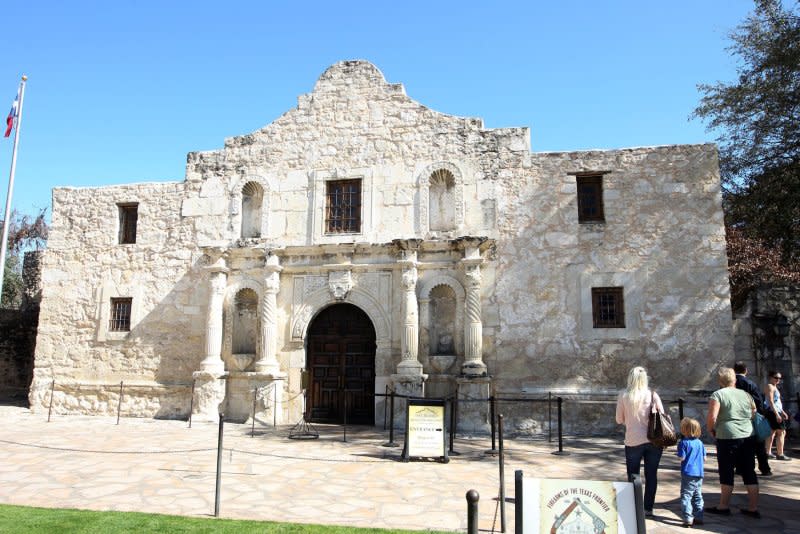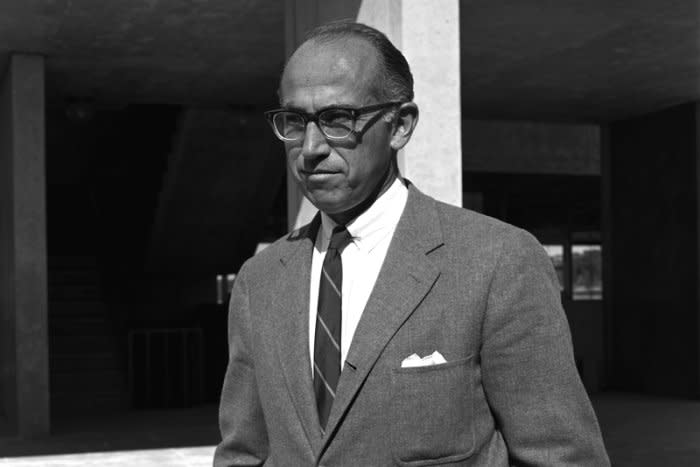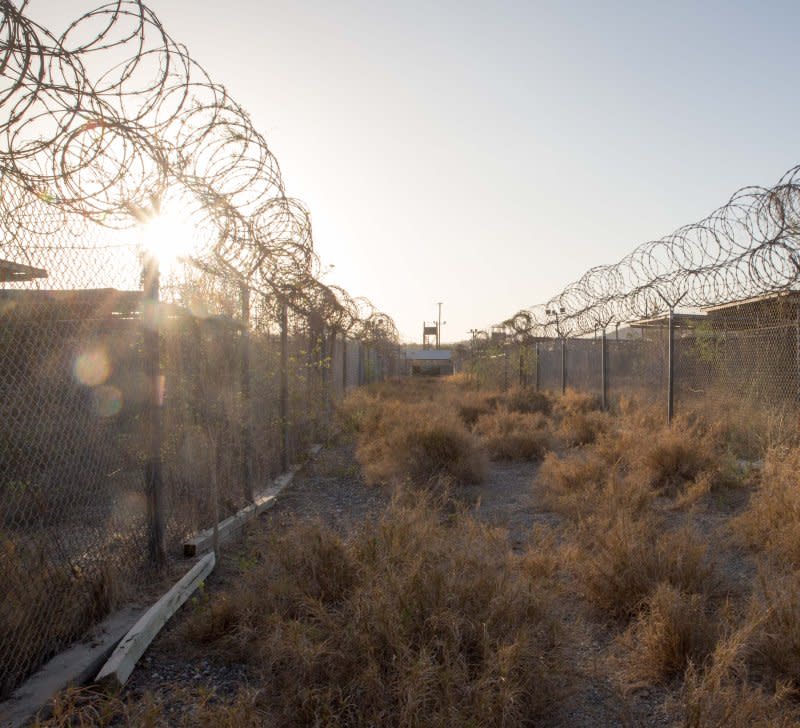On This Day, Feb. 23: Mexico begins assault on the Alamo

Feb. 23 (UPI) -- On this date in history:
In 1836, soldiers under the command of Mexican President General Antonio López de Santa Anna began their assault on the Alamo Mission near present-day San Antonio, Texas. Eleven days later, the Alamo's small group of Texian (Texan) defenders were defeated by the 1500-plus Mexican Army.
In 1903, the United States was granted a lease "in perpetuity" on Guantanamo Bay by Cuban officials.
In 1942, a Japanese submarine surfaced off the coast of California and fired 25 shells at an oil refinery near Santa Barbara.
In 1945, members of the 5th Division of the U.S. Marines planted a U.S. flag atop Mount Suribachi on the strategically important Pacific island of Iwo Jima near the end of one of World War II's bloodiest battles.

In 1954, Dr. Jonas Salk's new polio vaccine was administered to a group of children in Pittsburgh in the second stage of testing of his inactivated polio vaccine.. Millions of children would get the vaccine in the next year.


In 1981, right-wing troops seeking to topple Spain's democracy seized Parliament and its 350 deputies in a blaze of gunfire. The attempted military revolt was quelled when King Juan Carlos called for calm and loyalty.
In 1982, Canada, Japan and the Common Market nations of Europe joined the United States in economic and diplomatic sanctions against Poland and the Soviet Union to protest imposition of martial law in Poland.

In 1991, military forces in Thailand overthrew the elected government and imposed martial law.
In 1994, Bosnia's warring Croats and Muslims signed a cease-fire. The Croats agreed to pull back from the Muslim city of Mostar, which had been under siege.
In 1999, a jury in Jasper, Texas, convicted self-described white supremacist John King in the June 1998 killing of a Black man who'd been dragged to his death behind a pickup truck. Two days later, King was sentenced to death.
In 2006, the snow-covered roof of a Moscow vegetable market collapsed, killing at least 60 people and injuring more than two dozen others.

In 2013, Iran's atomic energy agency announced plans to build 16 nuclear power plants throughout the country. The announcement came days before Iran was to resume talks on its internationally disputed nuclear program.
In 2020, Chinese President Xi Jinping declared the coronavirus epidemic the greatest public health emergency since 1949. Meanwhile, Italy became the epicenter of the first COVID-19 outbreak in Europe, with 132 cases.
In 2023, disgraced Hollywood producer Harvey Weinstein was sentenced to an additional 16 years behind bars in California after being convicted of three counts of rape and sexual assault. He was already serving a 23-year prison sentence that was handed down after another rape trial in New York.


